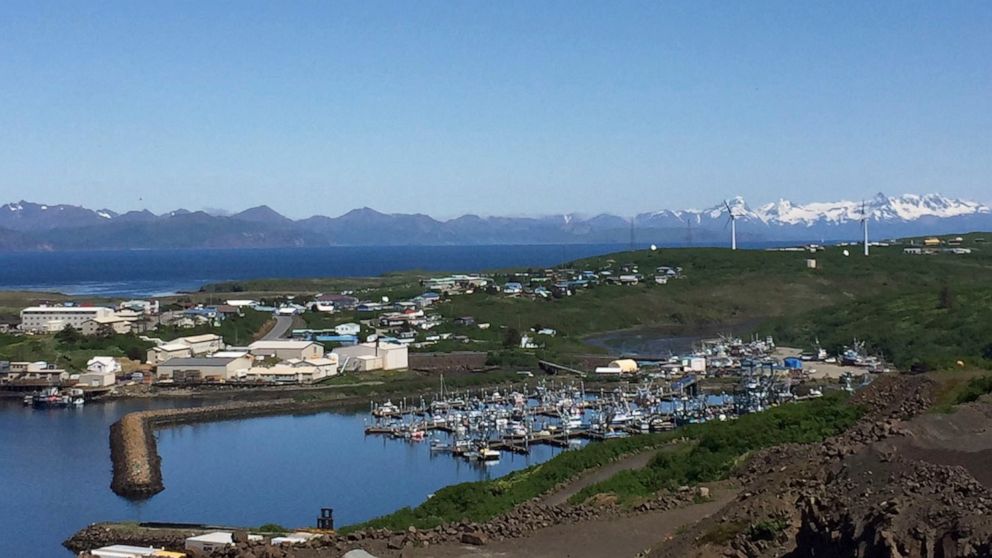A powerful 7.2-magnitude earthquake struck near the Alaska Peninsula late Saturday.
Preliminary data placed the quake about 55 miles southwest of Sand Point, Alaska, the National Weather Service said. It had initially been measured at a magnitude of 7.4, the United States Geological Survey said on Twitter.
It struck at about 10:48 p.m. local time. In Kodiak, Alaska, sirens sounded late at night, according to a video posted on social media.
The quake prompted the National Weather Service in Anchorage to issue a brief tsunami warning, saying there was a risk of “significant inundation,” an alert that was downgraded to an advisory before being canceled altogether early Sunday.

This file photo provided by Andy Varner, city administrator for Sand Point, Alaska, shows the city’s harbor on June 7, 2016. A 7.2 magnitude earthquake triggered a brief tsunami advisory for southern Alaska, monitoring bodies reported late Saturday, July 15, 2023.
Andy Varner/AP
“A tsunami was generated by this event, but no longer poses a threat,” the NWS National Tsunami Warning Center said. “Some areas may continue to see small sea level changes.”
The center’s earlier update had been an advisory, urging locals near the coast to “move off the beach and out of harbors and marinas.”
In a brief tsunami warning before the advisory, weather officials had listed times spanning about 90 minutes when tsunami waves were expected to hit the shore “from Chignik Bay to Unimak Pass.”
“Significant inundation is possible or already occurring,” the service’s Anchorage office said on Twitter in announcing the earlier warning. “Move inland to higher ground.”

This image made from the video posted to social media by Jared Griffin shows vehicles around Kodiak High School following the earthquake, in Kodiak, Alaska, Saturday, July 15, 2023.
Jared Griffin via AP
There was no tsunami threat in Hawaii, the state’s Management Agency said.
The earthquake was along the Alaska-Aleutian subduction zone, where large tremors are common, USGS officials said in a summary of the event.
“Since 1900, nine other earthquakes M7 and larger have occurred within 250 km of the July 16, 2023, event,” USGS said.
An 8.6-magnitude quake struck about 93 miles away on April 1, 1946, causing a tsunami that “devastated the lighthouse on Unimak Island and swept away its five occupants,” USGS officials said. Tsunamis from that quake killed an additional 159 people in Hawaii and one person in California, according to the summary.
A 9.2-magnitude earthquake in the Alaska-Aleutian Trench on March 27, 1964, was the second largest ever recorded by modern seismic instrumentation, officials said.
ABC News’ KJ Edelman contributed to this story.






